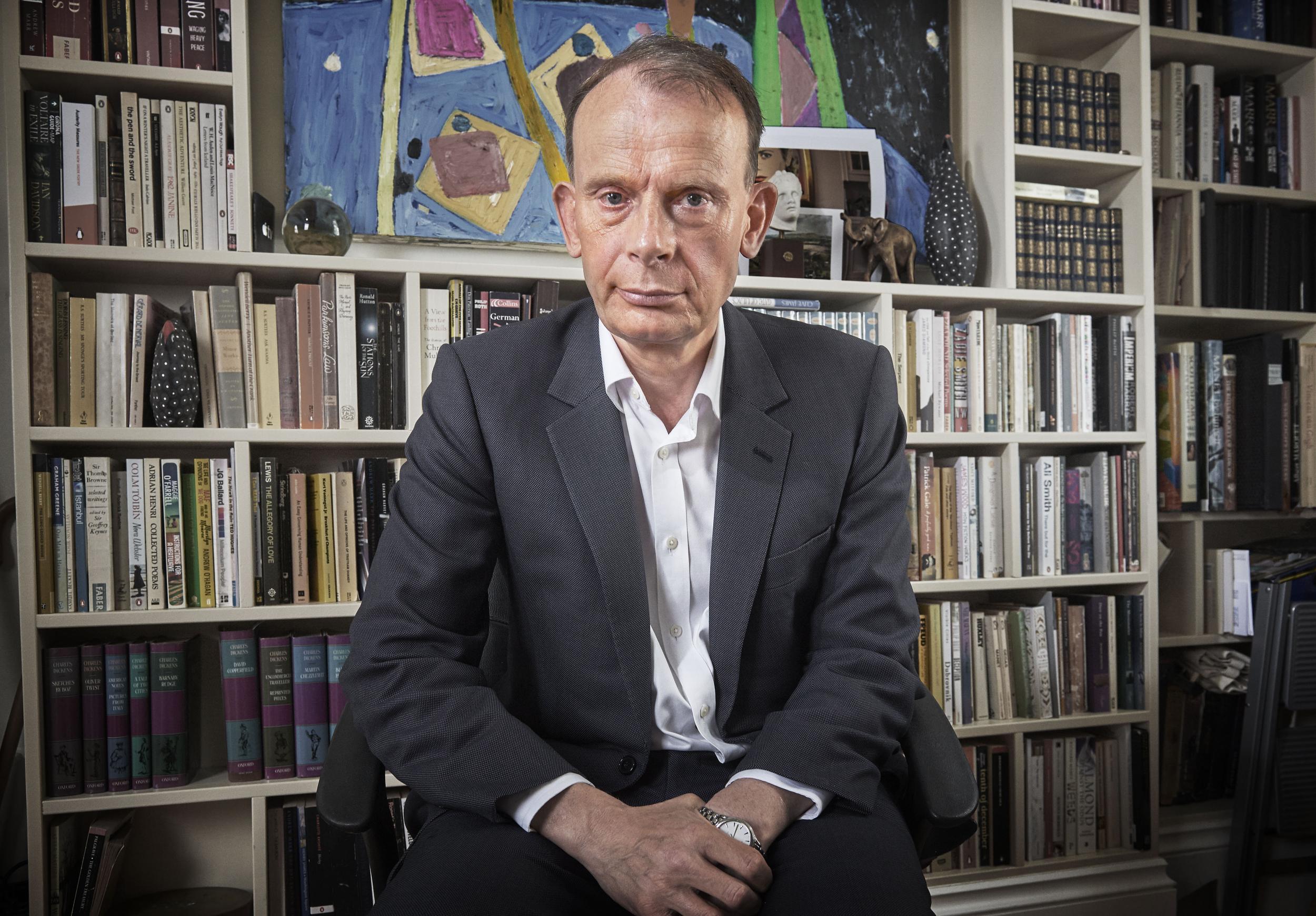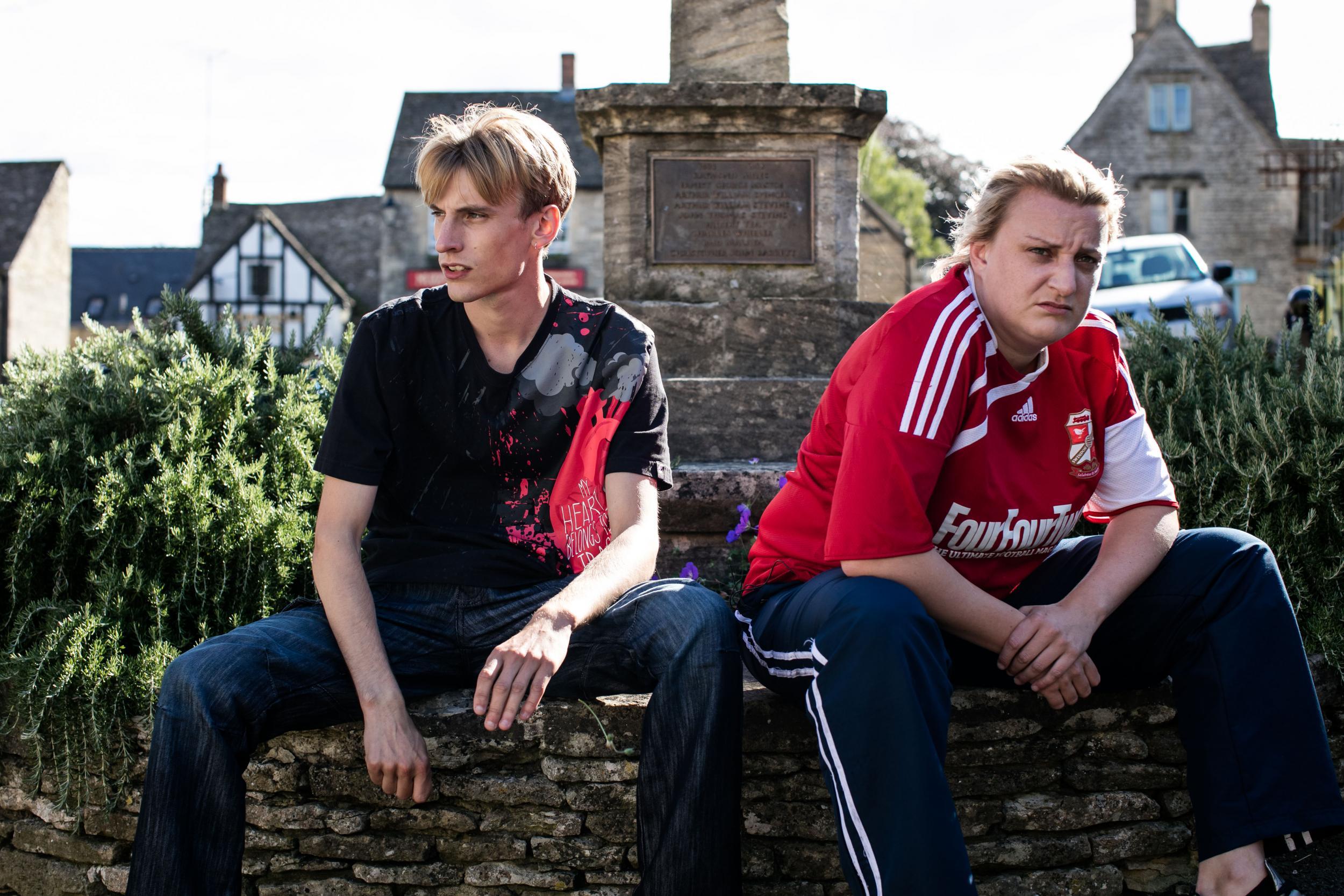Last night's TV: Andrew Marr: My Brain and Me (BBC2); The Moorside (BBC1); This Country (BBC3)

In his eloquent testimony about life after his stroke, Andrew Marr tells us he is never moved to tears and certainly not by the medical situation he has found himself in since he collapsed after overdoing it on a rowing machine in 2013. Self-pity, he says, is the most nauseating sort of emotion.
Quite right, but Andrew Marr: My Brain and Me was a sobering hour of viewing, and a difficult one for those of us, such as this reviewer, all too prone to nauseating self-pity and its equally sickening psychological mate, hypochondria. Stroke is the biggest single cause of disability in Britain, and I have seen too much of its effects on friends, family, colleagues and acquaintances not to be haunted, even a touch nauseated, by it. We should all be terrified, for even the usual precautions aren't always sufficient defence against it.
Andrew Marr was an extremely fit and far from an old man when he mistook his stroke for a bad migraine, and, while this was no morality tale about the dangers of working too hard, it was hard to avoid that thought straying into one's head as he confessed to pushing himself too far in every area of his life. At one point he was reminded by a fellow journalist, Jane Moore, of the quip he made to her when she met him the day before he suffered the stroke, after she’d told him he looked a bit weary: “There’s plenty of time for sleep when we’re dead.”
Now we see him trying to do the sort of tricks with coloured balls and a beaker that three-year-olds can manage. Understandably, he’ll pay any price and bear any burden to make himself better, especially now that his recovery has, frustratingly, “plateaued”. This included going to the John Radcliffe Hospital in Oxford to have a tiny electric current pumped into his brain (fairly ineffective, but can work for some), and flying to Florida and spending £7,000 on having an anti-inflammatory drug injected into his head. That unconventional experiment yielded some marginal improvement in Marr’s gait and use of the fingers on his left hand; he could get round the hospital car park about 30 seconds faster than before, a bigger difference than it sounds. Nor was Marr alone in finding some new hope: another stroke patient he met was shown having revolutionary stem cell treatment, with some mobility returning to a paralysed left arm.
It is early days for all these techniques and others that promise even greater success, and, with or without them, the family, social and working lives of those who’ve had a stroke, such as Marr’s, can still be rich and enriching to others. Even so, as we watched him try to fit his new treatments in with all his many literary and broadcasting, family and social commitments, his physio and his painting, I was all too conscious of another quip he relayed to us in the film: “It’s the second stroke that kills you”. He even smirked when he said it. I’d respectfully suggest that’s taking a usually commendable lack of self-pity a bit too far. Not nauseating, for sure, but it made me feel a bit queasy.

I must mention once again This Country, an astonishingly fine gem of a mockumentary that you can find digi-side on BBC3, and repeated, if that’s the right word, late on a Saturday night on BBC1. You will, I hope, thank me for pointing you in its direction as you will be able to say you were an early fan of this superbly observed, exquisitely scripted exploration of the dank, dishonest, foul-mouthed, emotionally desolate, badly-tattooed underbelly of life in a Cotswold village. You really do need to meet Kerry and Kurtan Mucklowe.
The second instalment of The Moorside followed the aftermath of the safe recovery of Shannon Matthews on her family and community – an unbearably painful one. Her fake kidnapping in 2008, planned by her mother, Karen, and a step-uncle, for financial gain from the reward money, prompted the biggest police operation in the North since the hunt for the Yorkshire Ripper. The wasted millions of pounds were hardly the limit of the damage: this bizarre scheme destroyed the lives of the Matthews family, and stigmatised the people of the Moorside estate in Dewsbury, portrayed as some sort of cesspit of immorality by a media all too happy to believe the worst in people who happen to be “just managing”.
Sheridan Smith was brilliant as Julie Bushby, community organiser and friend of Karen’s, blending steel with compassion. Sian Brooke (who lately shined in Sherlock) was Karen's neighbour Natalie Brown, a more angry and less understanding former friend, and Gemma Whelan portrayed the unfathomable Matthews herself. Whelan gave us the plausible impression that Matthews just wasn’t up to being an adult, emotionally or intellectually, and that it all flowed from that central fact. Could it be that Karen Matthews was actually so stupid and so naïve that she was close to being not responsible, morally or legally, for what she did? Was that possibility allowed for in the trial and sentencing, overshadowed as it was by exploitative politicians on about “broken Britain”, intrusive media and a public moral panic? Was there, then, more to the Shannon Matthews kidnapping than that Karen Matthews was simply “evil”? It’s the most disturbing thought of many to emerge from that pitiful episode. The BBC were damn right to make the drama, and make us think again about what happened, and why.
Join our commenting forum
Join thought-provoking conversations, follow other Independent readers and see their replies
Comments
Bookmark popover
Removed from bookmarks